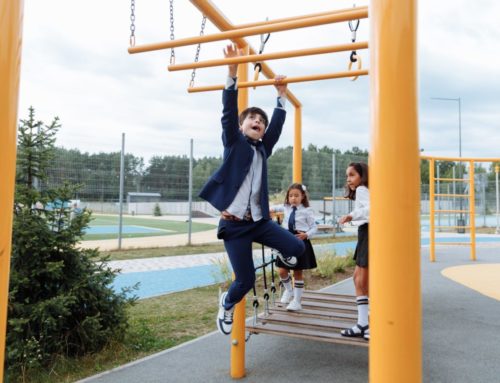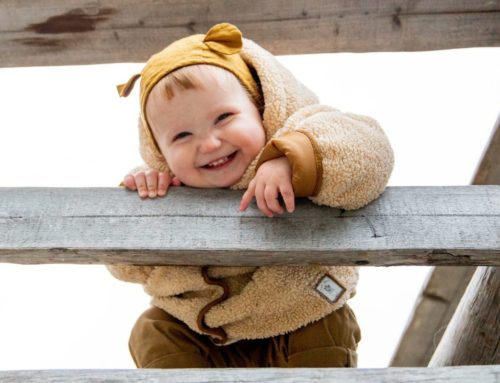
“Discipline” has received a swearword status in many modern parenting circles. It is now quite trendy to withdraw from being the disciplinary figure in favour of being a child’s friend. While this is mostly well intended (and evokes wonderful images of parent and child frolicking through daffodil fields all day), it can be harmful to both parties.
This inclination towards permissive parenting is mostly the result of a misunderstanding of the true meaning of discipline and what children need to thrive. Many of us dislike the idea of discipline because we imagine a big, angry person dishing out harsh punishments and forcing his or her selfish will onto an innocent, vulnerable child. (Are you also seeing Cinderella’s stepmom? Or sadly, maybe one of your own parents?) Well yes, no child should be subjected to this type of authoritarian parenting, which sits at the other end of the spectrum.
Fortunately, there is an alternative to these two extremes. It’s called authoritative parenting. This entails parents who are exceptionally nurturing and responsive to their children, but who also believe in the value of consistent boundaries. Studies found the product to be happier, more successful, more socially adept children who exhibit significantly less behavioural problems. I’m sure all of us want that for our munchkins!
Defining Discipline
What does healthy discipline look like?
The word “discipline” comes from the the word “discipleship”. It involves mentorship and leading by example. It entails an older, wiser person coming alongside a child (who is still but a glorified bundle of primal, selfish impulses) and helping him to make good choices that will ultimately benefit and protect himself and others. It is a long-term process of training, teaching and yes, sometimes correction. Discipline includes setting clear boundaries with predictable, consistent consequences if they are crossed; as well as reinforcing positive behaviour to motivate more of it. True discipline is not born from anger, spite, frustration or selfish needs. It is not a parent’s license to get his own will or “stay in control”. Discipline is done in love, not revenge.
The crucial cornerstone
A loving, supportive relationship with a child is the precursor to any form of parenting success. This includes being sensitive to a child’s temperament. If our children do not feel nurtured, understood and cherished, they have no reason to trust and obey the boundaries we set for them, except out of fear (which would ultimately just end up causing rebellion). You need to have fun with your child and they need to feel like they are a delight in your eyes, but they also need to know you are their parent (that you do have authority over them). This balance will help you reach the sweet spot in your parenting journey.
Why children need discipline?
Dr. James Dobson makes a classic comparison: If you were to drive on a bridge without railings, you would probably drive closer towards the middle of the road, and even then you’d feel anxious. Railings are equivalent to boundaries – when they are present, we feel secure and actually experience less restriction. If children do not know where the lines are, they have no notion of how far they can go before something awful happens, and therefore they feel insecure. (Note: This does not mean that they won’t test the boundaries you put up! They are still human.)
Furthermore, discipline has long-term, life-altering effects. If we allow our children to be guided by their own will, we breed adults who have no self-control. A four-year-old helping himself to cookies from the pantry without permission may seem cute; a 15-year-old taking alcohol from the bar, not so much; a 30-year-old taking money from his company – downright criminal. Not all undisciplined children end up lawless, but it’s much harder for them to become agreeable, successful adults.
Why parents need it?
If our goal is to be our child’s friend, we are looking for double trouble. In the first place, we set ourselves up for rejection, because most children do not want a parent as their best friend, and will soon go looking for a more suitable playmate. Ouch! Secondly, we set ourselves up for chaos. Without discipline, we subject ourselves to the fickle, immature, demanding will of our children as the reigning force in the home. This creates tension and misery for the entire family – including the child. Children who hold the reins are miserable, moany and demanding. When the parents have well established loving authority, children are at peace, feel more secure and are just far happier little humans.
How discipline differs from punishment
Punishment is about revenge and is implemented in anger. Consequences, however, are implemented in empathy when boundaries are crossed and should be used as a component in discipline – one of the tools in your discipline tool box. After all, consequences are a normal part of life. You speed, you’ll get a fine or cause and accident; you slack at work and you’ll lose your job. Consequences are only used for deliberate misbehaviour. Provided the consequence is not too harsh (instilling fear or rebellion) or too mild (effectively making a mockery of the practice and encouraging further misconduct), it is an effective tool in our discipline kit. It teaches children that the world works according to rules, and that it is unpleasant or even dangerous not to follow them. They will inevitably encounter this law of life (be it at school, their boss and/or the law) – better it is introduced by someone who loves them nice and early in their lives. Read more about consequences here.
Remember that our end game is to raise optimally functional, emotionally stable, altruistic adults. To this purpose, I dare you to discipline!
The Munchkins team at your rescue
Do you feel like you’ve dropped the discipline ball? Please consider contacting us for a parent coaching session to restore the order in your home. We also present various talks related to discipline and the book A Brand-New Child in 5 Easy Steps offers invaluable guidelines on the topic.





